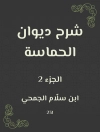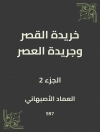In ‘A Minor Poet, and Other Verse, ‘ Amy Levy presents a compelling collection of poetry that deftly intertwines personal introspection with broader social commentary. Characterized by its lyrical elegance and nuanced exploration of themes such as identity, gender, and urban experience, this work exemplifies the aesthetic movement of the late 19th century. Levy’s poems often reflect a profound awareness of the constraints placed upon women in Victorian society, employing rich imagery and innovative forms to engage readers with the emotional landscapes of her time. Her voice resonates with both vulnerability and strength, challenging the conventional poetry of her era by blending the personal with the political. Amy Levy, an early feminist and an ardent supporter of women’s rights, was deeply influenced by her own experiences navigating the constraints of her society. As a pioneering woman in literature, Levy’s background as a Jewish poet in a predominantly male literary landscape informs her unique perspective on the struggles and aspirations of women. Her works often serve as both a reflection of her own life and a manifestation of her commitment to dialogue around women’s roles in culture and society. Readers seeking an insightful yet poignant exploration of the female experience in the late 19th century will find ‘A Minor Poet, and Other Verse’ an essential addition to their literary repertoire. Levy’s masterful command of language and her ability to articulate complex emotions make this collection a captivating journey into the heart of a woman navigating a world filled with paradoxes. This is a collection that invites reflection, thought, and discussion, making it a timeless piece worthy of both academic and personal exploration.
About the author
Amy Levy (1861–1889) was a British poet, novelist, and essayist, known for her incisive social commentary and pioneering Jewish themes. Her literary career, though brief, left a significant impact on Victorian feminism and literature. Levy was the first Jewish woman to attend Newnham College, Cambridge, an experience that deeply influenced her writing. In her poetry collection ‘A Minor Poet, and Other Verse’ (1884), Levy explores themes of isolation, unrequited love, and the struggles of the artist, often channeling her own sense of alienation into her work. Her verse is noted for its intensity, candor, and technical mastery, standing as a testament to her intellectual vigor and emotional depth. Despite facing contemporary criticisms for her melancholic tone, today Levy is recognized for her contribution to feminist literature and her role as a trailblazer for future generations of women writers. Sadly, her life was cut short by her suicide at the age of 27, but her poignant literary voice continues to resonate with readers, scholars, and poets who find in her works a passionate and distinctive expression of the human experience.












